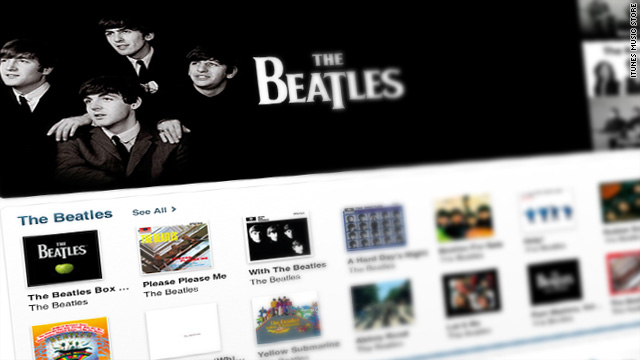
Appearing to cave to Hollywood demands, Apple has quietly added a restrictive copyright protection mechanism to its new MacBooks that is preventing customers from watching movies on external displays.
Apple has secretly included a copy protection scheme called High-bandwidth Digital Content Protection (HDCP) in the external display ports on the latest models of it MacBooks, released in the middle of October.
Apple has not disclosed the new anti-copying mechanism, and now increasing numbers of customers are discovering that they cannot play movies bought from the iTunes online store on many external monitors, TVs or projectors.
"I tried all the movies that I have purchased from the iTunes Store with the same result," said "Maxyourmacs," who complained about the issue on Apple's support forums. "None of them will play on anything but the MacBook's small 13-inch screen. This is crazy unacceptable."
Released by Intel in 2001, HDCP is designed to prevent digital pirates from outputting movies to copying devices, such as digital video recorders. In industry parlance, the technology plugs the "analog hole" -- the security hole created by analog devices like TVs and monitors.
By definition, the technology also prevents movies from playing on non-compliant devices like older computer monitors or flat-screen TVs, which many Apple customers are just now discovering. Even TVs a couple of years old may not be HDCP compliant.
The issue is complicated by obsessive secrecy surrounding the technology. HDCP has been added to many models of Blu-Ray players and other entertainment devices, and several laptops from a range of PC manufacturers. However, it is unclear how many devices are HDCP-compliant: Manufacturers don't explicitly label which products are and aren't. Even industry analysts don't know how widely the technology has been adopted.
Intel declined to comment, and Apple did not respond to several requests for comment.
However, the surging popularity of Apple's laptops and its iTunes online store is bringing the issue to the fore.
The copyright mechanism is posing problems for some customers, who are complaining in Apple's support forum that they had no idea their viewing devices were not compliant with the HDCP standard, forcing them to watch movies purchased from the iTunes Store on their small laptop screens.
"You really shouldn't be expected to know whether your video devices are compliant," said James McQuivey, a technology and media analyst at Forrester Research. "It's not your job. To require that burden on them is an unfair thing to do."
Apple's new MacBooks (including the MacBook Pro and MacBook Air) are the first Macs to include HDCP. McQuivey said Apple is clearly giving in to pressure from its studio partners.
McQuivey said studios are reluctant to deal with iTunes since its movie-purchasing model involves downloading content straight to a hard drive, where it is vulnerable to copying. Movies are easily copied and shared with friends on DVDs or thumbdrives (as long as the sharer also provides their password).
Movies from services like Vudu and Netflix, on the other hand, which stream movies over the internet, are much more difficult to copy and easier to police, he said.
McQuivey noted that iTunes' movie offerings (about 1,500 movies) pale in comparison to Vudu (5,000 movies) and Netflix (15,000 movies) because studios are distrustful of customers downloading movies to their hard drives.
Michael Cai, director of digital media at Parks Associates, a digital market research firm, said the headaches caused by HDCP is largely a result of poor communication between manufacturers.
"The industry hasn't done a very good job in coordinating with each other to make sure their devices are compatible with each other so you won't feel this issue," Cai said. "And they haven't done a very good job in terms of educating consumers with these issues."
Cai, himself, experienced the pains of HDCP. He recently tried to plug his Blu-ray equipped Sony VAIO laptop into his Sharp high-definition TV, and the image wouldn't show up.
McQuivey added that the HDCP restriction might be counterproductive for both Apple and movie studios: It could encourage MacBook owners to resort to illegal means of downloading, such as BitTorrent.
In the Apple support forums, this already seems to be the case.
"Apple will be out of luck, because we will, as of today, buy no more movies from the iTunes Store," writes a new MacBook Pro customer, who said he couldn't play an iTunes-purchased copy of Terminator 2 on his TV. "If this starts hitting the TV shows and the music videos, too, then we'll stop buying them from the iTunes Store as well."
Intel declined to comment. Apple did not respond to several requests for comment.







